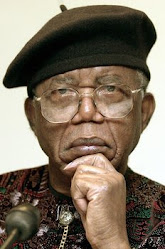 We're told right from the beginning about the troubling deaths of two black South Africans: Gordon Ngubene and his son Jordan. Gordon used to be a janitor at the school where Ben Du Toit, the protagonist, teaches history and geography. Gordon and Ben got to know each other better after Ben helped Gordon out of a tight spot. Ben also took on the responsibility of paying for Jordan's tuition because Jordan seemed like such a promising young kid. All that young promise vaporized when Jordan reached his mid-teens and morphed into a restless fool, boiling with teen angst and unwilling to continue schooling. It's not long before he disappears unexpectedly. There's something really shady about his disappearance and the subsequent police "investigation" that bothers Gordon. Gordon quits his job at the school and goes underground to investigate the circumstances surrounding his son's death but he also disappears and returns as a dead body. Ben Du Toit takes it upon himself to investigate the deaths of these two black men in apartheid South Africa. His hunt for truth and justice come at great personal cost and threatens everything he has - his family, his job, his privacy, his personal safety, and his mental health - but he ploughs on, impervious to the pleas of family and friends. Can Ben Du Toit expose South Africa's police and the country's corrupt legal system?
We're told right from the beginning about the troubling deaths of two black South Africans: Gordon Ngubene and his son Jordan. Gordon used to be a janitor at the school where Ben Du Toit, the protagonist, teaches history and geography. Gordon and Ben got to know each other better after Ben helped Gordon out of a tight spot. Ben also took on the responsibility of paying for Jordan's tuition because Jordan seemed like such a promising young kid. All that young promise vaporized when Jordan reached his mid-teens and morphed into a restless fool, boiling with teen angst and unwilling to continue schooling. It's not long before he disappears unexpectedly. There's something really shady about his disappearance and the subsequent police "investigation" that bothers Gordon. Gordon quits his job at the school and goes underground to investigate the circumstances surrounding his son's death but he also disappears and returns as a dead body. Ben Du Toit takes it upon himself to investigate the deaths of these two black men in apartheid South Africa. His hunt for truth and justice come at great personal cost and threatens everything he has - his family, his job, his privacy, his personal safety, and his mental health - but he ploughs on, impervious to the pleas of family and friends. Can Ben Du Toit expose South Africa's police and the country's corrupt legal system?I dislike forewords, prologues, and introductions in novels. The more pages a writer devotes to his or her prologue, the less chance I'll read the entire thing. I always just want to begin at chapter one. Thankfully, I didn't read this particular foreword until I was done with the novel and its epilogue (I don't mind epilogues) because it would have ruined the entire novel for me. If you do decide to read the thirty-five pages of this novel's foreword there will be little surprise ahead for you and you're going to want to find a reason to keep flipping pages because A Dry White Season isn't that engrossing.
Ben Du Toit is a white man in a racially segregated South Africa who's deeply disturbed by the unjust treatment of blacks and the disgusting cover-ups of their murders by the government. With all of the issues at stake in this novel I expected to be on Ben's side but I'm not moved by him. His naivety is astounding, unnerving and irritating at times. The mere fact that a middle-aged man in that environment still had complete trust in the justice system caused me to lose faith in him and his ability to bring the killers to justice. Is Andre Brink using Ben Du Toit to depict the naivety that results from being in a privileged racial class or is Ben Du Toit just ignorant? Even his confrontation of authority was childish and reckless which is serious because of the potential consequences that could result from being so "fearless". Ben Du Toit is not a martyr for South African blacks but I applaud his earnest efforts and his pushing forth despite all odds. A Dry White Season feels like it's supposed to be a highly compelling portrait of the injustices in apartheid South Africa or something of that sort. I had some difficulty getting through it but in retrospect the novel seems more engaging than it really was. I wish it had been a much better read.
Image via [Goodreads]


















